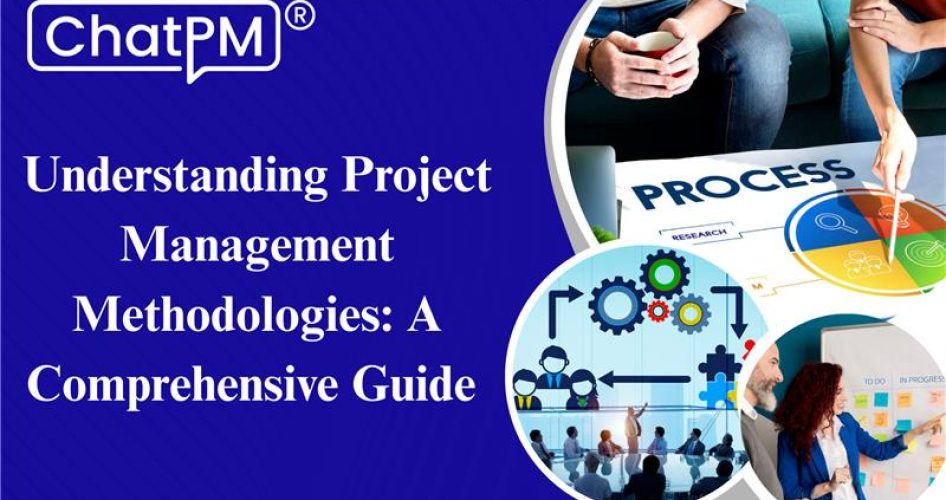Have you ever wondered how successful teams manage their projects efficiently? What makes one project management approach better than another? The secret lies in choosing the right project management methodology. But are you not sure what does it means? This guide will help you understand the most common project management methodologies in a clear and simple way. So, let’s dig in!
What is a Project Management Methodology?
Advantages of Using the Right Project Managment Methodologies
1. Boosts Efficiency
2. Reduces Risks
3. Saves Money
Top 6 Project Management Methodologies
1. Waterfall Methodology
The Waterfall Methodology is a simple and structured method to manage a project. It works like a step-by-step approach; only one step needs to be taken before a new step can be started. It is also known as the Software Development Life Cycle (SDLC). As it follows a clear and linear path, it’s easy to track progress and communicate with the team.
Waterfall is best for large projects with many people involved because it has clear steps and well-planned tasks. It keeps everything organized and avoids any confusion. Waterfall is a traditional method, but it’s perfect when you have a project that needs to follow a planned and predictable path.
2. Agile Methodology
Agile project management is a popular and highly flexible way of managing projects. Instead of following a set process, Agile is a guideline that emphasizes teamwork, speed, and learning from feedback. It values people, collaboration, and working solutions, which helps teams come up with solutions quickly and effectively.
To implement Agile in a way that is effective, teams usually choose one of the methods that is effective with Agile such as Scrum, Kanban, Scrumban, or Extreme Programming. Agile project management is an excellent option for all types of teams. Its flexible and collaborative nature makes it easy to adapt and succeed in different project environments while always aiming for high-quality results
3. Kanban Methodology
Agile project management is a popular and highly flexible way of managing projects. Instead of following a set process, Agile is a guideline that emphasizes teamwork, speed, and learning from feedback. It values people, collaboration, and working solutions, which helps teams come up with solutions quickly and effectively.
To implement Agile in a way that is effective, teams usually choose one of the methods that is effective with Agile such as Scrum, Kanban, Scrumban, or Extreme Programming. Agile project management is an excellent option for all types of teams. Its flexible and collaborative nature makes it easy to adapt and succeed in different project environments while always aiming for high-quality results
4. Scrum Methodology
Scrum is a popular method where work is performed in small cycles called sprints. Sprints can last from one to two weeks and usually involve small teams (up to 10 people). Instead of following a long, step-by-step project plan, teams can focus on completing small goals in each sprint.
Scrum has a leader called a Scrum Master, who will guide the team, hold weekly meetings and check in after every sprint to see what went well and what needs to be improved. Scrum encourages teamwork, collaboration, and a steady progress. It can be applied to any size group under Agile methods, as teams can be divided into small groups and help keep projects on track and running in a timely manner.
5. Lean Methodology
Lean is a project management methodology that enables teams to work more simply and smartly. Its major goal is to eliminate anything that wastes time, effort, or resources. Rather than doing extra work, Lean enables you to work better on the right work. It’s all about teamwork, clear steps, and avoiding anything that doesn’t add value.
There are three types of waste that Lean tries to avoid: unnecessary work (Muda), uneven work that causes delays (Mura), and overloading the team (Muri). By managing these wisely, project teams can finish their work effectively and smoothly. Lean is beneficial to every team and puts all the team members on track and deliver high-quality results.
6. PRINCE2 Methodology
PRINCE2 stands for “Projects IN Controlled Environments.” It is a clear and structured way to manage big projects, especially in the IT world. This method breaks a project into different stages, helping teams plan, guide, start, control, and finish their work step by step. It was first made by the UK government and is still a great fit for large enterprise projects that have many people involved.
The process makes it easier to handle important tasks like starting the project, managing product delivery, and closing the work when it’s done. PRINCE2 focuses on setting clear roles and responsibilities so that everyone knows what to do without confusion. It’s a good choice for large projects that need careful planning and teamwork.
Understanding and utilizing the right project management approach can increase your team’s productivity and your projects’ success. Using Waterfall, Agile, Kanban, Scrum, Lean, or PRINCE2, each approach has its own advantages that help in handling your project, from start to finish. By selecting the correct approach for your team and project requirements, you can improve communication, reduce risks, and deliver the project on time.
Want to choose the best project management methodology for your team? Start exploring the options today and set your projects on the path to success!







